Essay
Why Independent Bookshops Still Matter
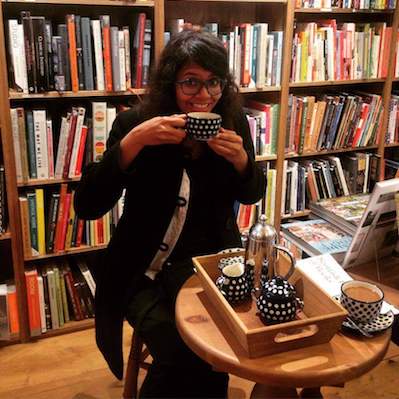
Parinita Shetty
April 27, 2018
Which isn’t to say that I want to start a morcha protesting the proliferation of online bookselling websites. Despite what the title might imply, I’m not setting out to deliver a judgemental lecture on the evils of online book-buying. Instead, I hope to begin a conversation about why good, local bookshops are important.
I spoke to a few readers about their book-buying habits – both online and off. Most agree that when looking for something specific, logging onto online stores works best. Apart from the ease of buying books immediately from the comfort of their own homes, the discounts are another factor propelling readers online. However, illustrator Shreya Sen cautions that only shopping for books online can limit your reading. “The recommendations that websites [like Amazon] give you are related to what you already like. So you don’t discover anything new,” she says.
Independent bookshops cannot hope to compete with the advantages offered by an online bookseller. If you visit a bookshop with expectations of steep discounts or of finding nearly any single book you can think of, you’re likely to be disappointed. Which is why bookshops need to rethink the way they promote themselves. While they might not be able to offer the convenience of an online bookseller, they should market their distinct advantage in the sort of experience they can provide.
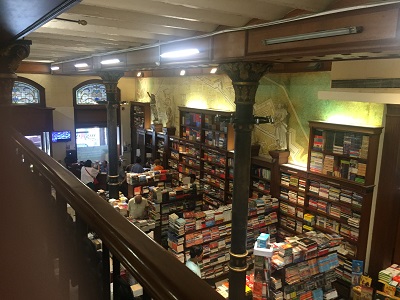
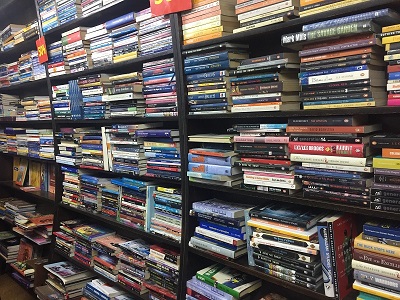
A specialised well-curated collection can help a shop develop a distinct personality which draws readers back. A knowledgeable well-read staff who knows what they have, makes recommendations, and is enthusiastic about the books “can make even an average bookstore fabulous” as editor and writer Aparna Kapur says.
“I don’t want to go into a bookshop which merely feels like an impersonal store,” explains writer, parent and reading club organiser Harshikaa Udasi. “I like for the person to enhance my knowledge of the book. The advice of a ‘book person’ is essential. Then, I don’t mind paying a higher price because of the expertise.” However, not many independent bookshops have people who are able to do this well.
Browsing through the interestingly-stocked shelves, discovering new authors and books they’ve not heard of, and being surprised and excited by the books they find are the favourite bits of visiting bookshops for the readers I spoke to. Writer and literature-festival-curator Yashasvi Vachhani likes being able to physically go through the books she may have read about online before she commits to buying a copy.
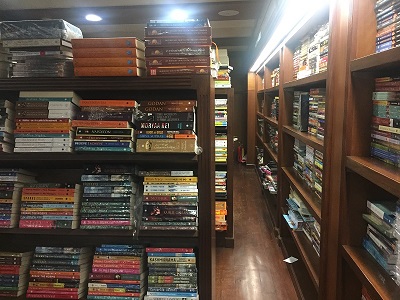

Events are a fantastic way for readers to meet authors, and for readers to meet each other. “It’s a good reason to visit the bookshop. You meet the writer, buy a copy, get it signed – you don’t mind paying extra for the book because of the experience,” says voracious reader Nina Rawal. “And once you’re there, you absolutely end up picking something. So I think those kinds of events which encourage building a community of readers need to be a more regular feature in independent bookshops,” Udasi adds. Children’s events and workshops are a fantastic way to engage young people with books and reading. Even adults can meet fellow book lovers – something comic-book-editor and writer Sanjana Kapur loves – or eavesdrop on shoppers and end up buying something they otherwise wouldn’t have – something Aparna finds herself doing.
Cafes in bookshops are another crowd-pleaser. Sometimes you don’t want to buy books but just want to be surrounded by books, as Vachhani points out. Bookshops which have found a niche can also use that as a promotional feature both in-store and on social media. For example, stores with a strong children’s book collection or science fiction and fantasy sections will bring fans in through the door.
Aparna believes editor’s picks and featured author sections in bookshops would be a great touch. Sen suggests friendlier reading spaces, particularly for children and teenagers. Annual sales in bookshops would also be a welcome way to draw people in. “I understand bookshops can’t offer the same discounts,” says Vachhani. “But I would like to see a good sale full of interesting titles. Everybody likes a good bargain.” Sanjana thinks the shops need to do a better job of displaying and promoting Indian books. “Even Amazon has a recommended list of books and some of them are rubbish but at least they include some good Indian titles,” agrees Udasi.
What seems to be another problem is the absence of good independent bookshops altogether. Not having any in the neighbourhood can ruin the best of intentions and force readers to turn to the internet. While independent bookshops might be an endangered species, I don’t believe we owe our support to those shops who don’t do their job well. Rather, my aim is to persuade readers to be more conscious about their book-buying habits. I believe that what independent bookshops offer is valuable; at the same time, I see the benefits of online booksellers. In my ideal world, both would co-exist quite happily. But I’m afraid that in our quest for convenience the latter will slowly drive out the former.
Do you have a favourite independent bookshop? When did you last buy a book from a bookshop? Share with us in the comments below.


Parinita Shetty
Parinita Shetty likes books, board games, blanket forts, and cake. She dislikes procrastinating but not enough to actually stop doing it. She works with children's books in different ways and has managed to write a few too. She should currently be writing but is probably watching Doctor Who. You can reach her on Instagram.

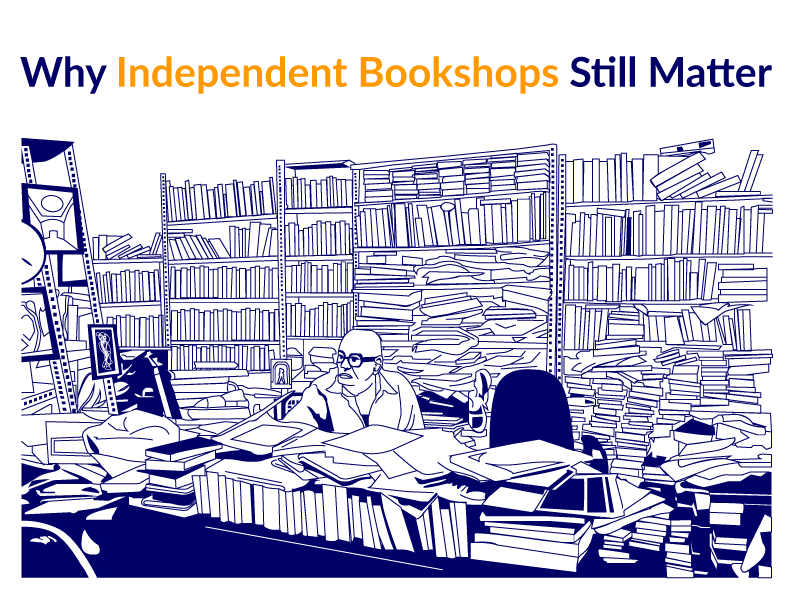

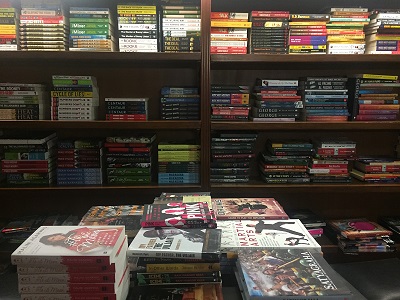


The last I bought from a bookstore was last week. I’ve been banned from buying physical books as all my shelves at home are overflowing with books. My favourite independent bookstore would be Kitab Khana followed closely by Wayword & Wise.
Kitab Khana for their interesting collection of off-beat books and regional literature, events, cafe and ever helpful staff and Wayword & Wise for their well-curated collection of international books. At Kitab Khana you can lose yourself for hours whereas at Wayword & Wise you can expect where to find what. Another favourite is airport bookstores. I just love browsing through them if it’s not a Crossword.
Hi Mansi,
Thank you for your comment. I completely agree. Kitab Khana is a real favourite of mine. I particularly love the little shelf near the counter with its reserved books. Gives you a real peek into what people are reading and that’s where I usually find something to buy. And yes, Wayword & Wise has the most amazing selection. Have you seen the Paris Review anthologies? I found them fascinating. Also, the only place where I’ve seen the Salvador Dali-illustrated edition of Alice in Wonderland.
I’m not particularly fond of airport bookstores though they do help if you’ve forgotten to carry a book. What do you love about them? Would love to know more.